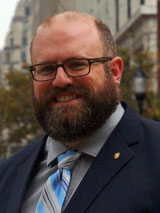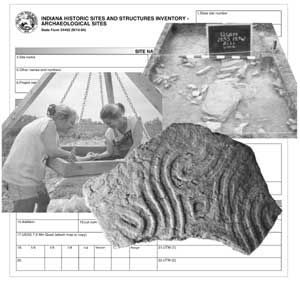Main Content
Article
Partners
The Indiana Historic Preservation Review Board
2021 Meetings
All meetings start at 1:30 p.m.
- Wednesday, January 20, 2021 -- Meeting at Fort Harrison State Park Inn and Conference Center
Roosevelt Room, Inn Building, 5830 N. Post Road, Indianapolis
C of A deadline: December 11, 2020, 4:45 p.m.
- Wednesday, April 14, 2021 -- Meeting at City Hall Assembly Room
130 Penn St., Westfield, 46074
C of A deadline: March 5, 2021, 5 p.m.
- Wednesday, July 14, 2021 -- Meeting at Fort Harrison State Park Inn and Conference Center
Roosevelt Room, Inn Building, 5830 N. Post Road, Indianapolis
C of A deadline: June 4, 2021, 4:45 p.m.
- Wednesday, October 13, 2021 -- Meeting at Fort Harrison State Park Inn and Conference Center
Roosevelt Room, Inn Building, 5830 N. Post Road, Indianapolis
C of A deadline: September 3, 2021, 4:45 p.m.
Note – unless otherwise announced, all meetings will be in-person at the indicated location. For the duration of the COVID epidemic, all COVID protocols will be enforced, seating will be appropriately spaced apart, and masking will be required. Opinions may be expressed to the board in writing and in email, all correspondence regarding scheduled agenda items will presented to the board. Contact DHPA at dhpa@dnr.IN.gov for further information.
The Indiana Historic Preservation Review Board makes decisions on preservation-related issues and provides public oversight for the division. The Board nominates Indiana properties to the National Register of Historic Places. Once the Board approves an application and it is signed by the State Historic Preservation Officer, it is sent to Washington to be considered by the Keeper of the Register. The Board also approves funding recommendations for the federal matching grant program, and review applications for state-funded projects that will alter historic properties. Division staff provides administrative and logistical support for board activities.
Board members are appointed by the governor for three-year terms. Five members are appointed for expertise in either archaeology, architecture, architectural history, or history. The Director of the Department of Natural Resources, also the the State Historic Preservation Officer, serves as the Board’s Chair. The Board also includes the Division Director and three citizen members whose interest historic preservation have gained recognition.
Members

Dan Bortner, director of the Department of Natural Resources and Indiana’s State Historic Preservation Officer, serves as the chairman of the Review Board. He was appointed as the director of the DNR by Gov. Holcomb in 2020 after 15 years as DNR's director of Indiana State Parks. In that position, Bortner took the division from preparing to close facilities to consistently operating in the black with 98% of guests saying they would recommend our parks to others. Infrastructure updated (including many preservation projects) under Bortner’s leadership has led to improved campgrounds that are typically full each weekend, and our state park inns have the highest occupancy rate of any state park inn system in the country.
Bortner earned a degree in public affairs from Indiana University. He serves as the president of the National Association of State Park Directors.

Beth McCord, Director of the Division of Historic Preservation & Archaeology and Indiana's Deputy State Historic Preservation Officer, has worked in cultural and heritage management for more than 25 years. She received her M.A. in Anthropology from Ball State University. During her career she has worked with clients in government, engineering, transportation and energy sectors. McCord has also worked on several state and federal grant projects, authored published articles and technical reports, and presented her research to a variety of audiences.

Anne Shaw Kingery, A native of Crawfordsville, Anne graduated with a Bachelor of Science in Archaeology from the University of Indianapolis in 2003. After working as a field tech for several years, she graduated with a Master of Historic Preservation from the University of Kentucky in 2008. She traveled to many states for projects, including California, North Dakota, Pennsylvania, Georgia, West Virginia, Missouri, Kentucky, Ohio, Tennessee, and of course Indiana, gaining Principal Investigator status along the way in both archaeology and architectural history. Anne served on the board of directors of the General Lew Wallace Study & Museum, and currently is on the board of directors of the Howard County Historical Society and the Indiana Archaeology Council.

Chandler Lighty, Governor Holcomb appointed Chandler Lighty as executive director of the Indiana Archives and Records Administration in August 2018. Prior to this appointment Lighty led the Indiana Historical Bureau, where he expanded the number of state historical markers installed annually, initiated an oral history of the Indiana General Assembly, and oversaw the creation of an award-winning podcast, Talking Hoosier History. Lighty has served in various public history jobs since 1997, including museums, archives, document editing, and digital humanities. He has previously been the project manager for Hoosier State Chronicles, an assistant editor with the Papers of Abraham Lincoln, and a public historian at the General Lew Wallace Study and Museum. He received the Thornbrough Award in 2015 for his Indiana Magazine of History article that reexamined the origins of basketball in Indiana. Lighty earned a M.A. in American History from Miami University, and a B.A. in History from Olivet Nazarene University. He is a 2017 graduate of the History Leadership Institute, sponsored by the American Association for State and Local History. His other professional service roles include the boards of the Indiana Association of Historians, the Indiana Magazine of History, and the General Lew Wallace Study and Museum.

Daniel Kloc is a 1987 graduate of the University of Notre Dame with a Bachelor of Architecture degree, and has been a resident of the Indianapolis area for 32 years. Daniel currently directs all design and construction projects, and manages project staff for Facilities Administration at Eskenazi Health in Indianapolis. Before coming to Eskenazi Health, he was director of operations for the architecture firm DkGr, and was the facility architect for St. Vincent Health. Daniel is a past president and current member of the American Institute of Architects, and a member of the American Society for Healthcare Engineering, the Indiana Society for Healthcare Engineering, and the Indiana Construction Round Table. He participates in his local community as a current member of both the City of Fishers Nickel Plate Trail Master Planning Committee and the Arts & Culture Commission Steering Committee. He previously served on the Town of Fishers Advisory Plan Commission, as past chairman of the Town Center Planning Committee, and as past president of the Fishers Arts Council. He also held the position of precinct committeeman for Delaware Township, Precinct 7 in Hamilton County.

Jason Larrison, AIA, is a Senior Project Manager at CORE Planning Strategies. Before CORE, Jason was Director of the Indianapolis Department of Business and Neighborhood Services and served as State Architect for Indiana. He is a native of Columbus, Indiana and a graduate of Ball State University’s College of Architecture and Planning. He and his family have lived in Indianapolis's Irvington neighborhood since 2001. While it’s easy to assume his upbringing in Columbus inspired him to work in the built environment, it had more to do with “the opportunity to be a public steward and make things better.” Throughout his career—which includes more than 17 years in the public sector—Jason has followed that opportunity.
Partners
As Indiana’s State Historic Preservation Office, the division partners with preservation and archaeology groups to preserve Hoosier heritage. These groups include national, state and local level governmental agencies, not-for-profit organizations, educational institutions, grassroots preservation societies, and avocational groups.
National
 National Park Service
National Park Service
1849 C Street, N.W. (org. 2255), Washington, D.C. 20240-0001
www.nps.gov/index.htm
The National Park Service (NPS), part of the U.S. Department of the Interior, is Indiana’s main partner for the preservation of cultural resources. Each year, NPS provides financial assistance to the division through its Historic Preservation Fund (HPF) Program. The majority of this money is redistributed as subgrants to municipal governments, educational institutions, and not-for-profit organizations throughout the state. The division works very closely with Service staff on such issues as the Underground Railroad Initiative and the National Historic Landmarks program. The National Park Service maintains three properties in Indiana – the George Rogers Clark National Historical Park in Vincennes, the Indiana Dunes National Lakeshore in Porter, and the Lincoln Boyhood National Memorial in Lincoln City.
National Trust for Historic Preservation
1785 Massachusetts Avenue, N.W., Washington, D.C. 20036
800-944-6847 or 202-588-6000 TTY: 202-588-6200
Midwest Regional Office
53 W. Jackson Blvd., Suite 350, Chicago, IL 60604
312-939-5547.
www.preservationnation.org/
Founded in 1949, the National Trust for Historic Preservation (NTHP) has as its mission “to foster an appreciation of the diverse character and meaning of our American cultural heritage and to preserve and revitalize the livability of our communities by leading the nation in saving America’s historic environments.” To this end, the National Trust carries out a number of major public education programs, including the operation of 18 museum properties nationwide. Historic Preservation, the National Trust’s award-winning magazine, features the history and architecture of significant places all across America. Special workshops teach educators how to use historic places in their own communities to make history come alive for schoolchildren. National Preservation Week focuses on a different theme each year in order to help communities promote preservation and highlight various aspects of their local heritage. The Trust’s National Main Street Center is one of the most successful community economic development programs in the country and helps to revitalize the economies of downtowns while preserving the fabric of these commercial districts. The National Trust also provides technical, financial, and legal assistance, as well as publicity for communities facing imminent threats to their historic character and resources.
League of Historic American Theatres
334 N. Charles Street, 2nd Floor
Baltimore, MD 21201 USA
410-659-9533
877-627-0833
fax: 410-837-9664
www.lhat.org/
Founded in 1976, the League of Historic American Theatres (LHAT) is an international not-for-profit membership association. LHAT is a network of people who appreciate the cultural and architectural heritage of historic theatres and who work locally and nationally to rehabilitate them to serve communities throughout North America and abroad. Members of the League collaborate with one another, share their expertise and provide inspiration, information and a broad perspective to those working in the field of historic preservation.
Members of the League include theatre operators and managers, preservation activists, architects, structural engineers, design and acoustical consultants, urban planners, restorationists (painters, plasterers, metalworkers), vendors (seats, marquees, stage equipment), booking and artist management firms, fund raising consultants, and many other types of service providers and members of the general public who serve or are interested in historic theatres. Membership in LHAT is open to all organizations, businesses and individuals interested in historic theatres. The League is 100% supported by membership dues, revenues generated from its programs and services and the generous support of private donors and sponsors.
278 Main Street, Suite 207
Greenfield, Massachusetts 01301
413-772-0836
www.gravestonestudies.org/
The Association for Gravestone Studies (AGS) was founded in 1977 for the purpose of furthering the study and preservation of gravestones. AGS is an international organization with an interest in gravemarkers of all periods and styles. Through its publications, conferences, workshops and exhibits, AGS promotes the study of gravestones from historical and artistic perspectives, expands public awareness of the significance of historic gravemarkers, and encourages individuals and groups to record and preserve gravestones. At every opportunity, AGS cooperates with groups that have similar interests.
American Cultural Resources Association
The American Cultural Resources Association (ACRA), a 501(c)(6) non-profit, was incorporated in March,1995, to serve the needs of the cultural resources industry. The cultural resources industry in the United States is estimated to be made up of over 500 firms employing over 10,000 people working in a wide variety of fields, including historic preservation, history, archaeology, architectural history, historical architecture, and landscape architecture.
ACRA’s mission is to promote the professional, ethical and business practices of the cultural resources industry, including all of its affiliated disciplines, for the benefit of the resources, the public, and the members of the association by: supporting the business needs of cultural resources practitioners, promoting professionalism in the cultural resources industry, providing educational and training opportunities for the cultural resources industry, influencing public policy, promoting public awareness of cultural resources consulting and its diverse fields.
National Conference of State Historic Preservation Officers (NCSHPO)
Suite 342 Hall of the States
444 North Capitol Street, NW
Washington, DC 20001-1512
202-624-5465
202-624-5419 (fax)
www.ncshpo.org/
The National Conference of State Historic Preservation Officers (NCSHPO) is the professional association of the State government officials who carry out the national historic preservation program as delegates of the Secretary of the Interior pursuant to the National Historic Preservation Act of 1966, as amended (NHPA) (16 USC 470). The NCSHPO acts as a communications vehicle among the State Historic Preservation Officers (SHPO) and their staffs and represents the SHPOs with federal agencies and national preservation organizations.
Preservation Action
401 F Street, NW
Suite 324
Washington, DC 20001
202-637-7873
202-637-7874 (fax)
www.preservationaction.org/
Preservation Action is a 501c4 nonprofit organization created in 1974 to serve as the national grassroots lobby for historic preservation. Preservation Action seeks to make historic preservation a national priority by advocating to all branches of the federal government for sound preservation policy and programs through a grassroots constituency empowered with information and training and through direct contact with elected representatives.
Since 1974, Preservation Action has been and continues to be the preeminent Capitol Hill advocate for national legislation favorable to historic preservation.
Preserve America
Preserve America is a White House initiative that encourages and supports community efforts to preserve and enjoy our priceless cultural and natural heritage. The goals of the initiative include a greater shared knowledge about the nation’s past, strengthened regional identities and local pride, increased local participation in preserving the country’s cultural and natural heritage assets, and support for the economic vitality of our communities.
Smart Growth America
1707 L St NW, Suite 1050
Washington, DC 20036
202-207-3355
202-207-3349 (fax)
www.smartgrowthamerica.org/
Smart Growth America is a coalition of national, state and local organizations working to improve the ways we plan and build the towns, cities and metro areas we call home. The coalition includes many of the best-known national organizations advocating on behalf of historic preservation, the environment, farmland and open space preservation, neighborhood revitalization and more. Our state- and regional-level members are community-based organizations working to save treasured landscapes while making our towns and cities ever more livable and lovable. Smart Growth America members work with citizens across the country to preserve our built and natural heritage, promote fairness for people of all backgrounds, fight for high-quality neighborhoods, expand choices in housing and transportation and improve poorly conceived development projects.
Other Federal Agencies
The division interacts with many federal agencies that own historic properties and archaeological sites, or that provide licenses, permits, or funding for projects involving cultural resources. The Section 106 review process requires that Division staff review and comment on these federal projects. Therefore, the division can utilize this interaction as an opportunity to educate the various federal agencies on sensitivity to cultural resources.
State
Commissioner of Agriculture / Hoosier Homestead Award Program
150 W. Market Street, Suite 414, Indianapolis, IN 46204
317-232-8770 Fax: 317-232-1362
www.in.gov/isda
One of the most widely recognized tools to encourage rural preservation is the Hoosier Homestead Award Program administered by the Office of the Commissioner of Agriculture. This program recognizes farms that have been continuously owned and operated by the same family for over 100 years. The program stresses the important contributions these family farms have made to the economic, cultural, and social advancement of Indiana. Honorees receive an enameled plaque to display outside the homestead.
Indiana Landmarks (Headquarters)
1201 Central Avenue, Indianapolis, IN 46202
317-639-4534 Fax: 317-639-6734
www.indianalandmarks.org/
Indiana Landmarks is the largest statewide not-for-profit preservation organization in the country. They work with individuals, businesses, nonprofit groups, and governmental agencies across Indiana to save, protect, and restore historic buildings. Special emphasis is placed on fostering preservation at the local level, particularly by nurturing local, grassroots organizations. Technical and financial assistance is available to local not-for-profit preservation organizations through Indiana Landmark's grant programs and Statewide Revolving Loan Fund. Public education efforts include programs, workshops, and publications to educate Hoosiers about preservation and the ways that local landmarks enhance the identity, unique visual qualities, and economies of neighborhoods, cities, towns, and rural areas. Indiana Landmarks also serves in a preservation advocacy capacity by working on preservation issues with local units of government and preservation commissions, state agencies and legislators, and national-level preservation organizations.
Indiana Archaeology Council
www.indianaarchaeology.org/
The Indiana Archaeology Council is an organization of professional archaeologists who have come together to promote the conservation and understanding of Indiana’s cultural resources by exemplifying proper, appropriate, and ethical excavation and analysis of all archaeological sites and materials; educating the public regarding the social and scientific importance of cultural resource preservation and management; providing a voice for professional archaeologists in public dialog regarding archaeology; and to share its profound respect for human cultural and biological diversity.
Indiana Arts Commission
402 W. Washington Street, Room W072, Indianapolis, IN 46204
317-232-1268 Fax: 317-232-5595 TTY: 317-233-3001
www.in.gov/iac
The Indiana Arts Commission (IAC) operates several assistance programs to benefit local arts organizations. A major goal of the IAC is to secure a significant role for the arts in local economic development, education, and cultural tourism. This goal provides an opportunity for the IAC to interface with the division and the Indiana Main Street Program through strategies that encourage the reuse and redevelopment of historic urban centers, particularly the rehabilitation of historic buildings for use by local arts organizations.
Indiana Economic Development Corporation
One N. Capitol Avenue, Suite 700, Indianapolis, IN 46204
317-232-8800 FAX: 317-232-5123
iedc.in.gov/
The Indiana Economic Development Corporation (IEDC) is the State of Indiana's lead economic development agency. The IEDC was officially established in February 2005 to replace the former Department of Commerce. In order to respond quickly to the needs of businesses, the IEDC operates like a business. Led by Indiana Secretary of Commerce and the IEDC President, the IEDC is organized as a public private partnership governed by a twelve-member board. The IEDC Board of Directors reflects the geographic and economic diversity of Indiana. The IEDC is focused exclusively on economic development and has incorporated all state entities with economic development responsibilities into its organizational structure. With its new structure and improved tool-kit resulting from a successful legislative effort undertaken by the Governor and the Indiana General Assembly, the IEDC is equipped and ready to make Indiana competitive in the 21th Century economy.
Indiana Department of Natural Resources
402 W. Washington St., Indianapolis, IN 46204
dnr.IN.gov
The Indiana Department of Natural Resources (DNR) is comprised of twenty-two divisions that oversee the conservation and protection of Indiana’s natural and cultural resources. The Division of Historic Preservation and Archaeology has almost daily interaction with land-holding sister divisions that require assistance in dealing with their prehistoric and historic resources, and shares responsibility for state-funded grant programs with several other divisions. This relationship provides opportunities to promote the division's programs through other DNR offices and facilities.
Indiana Department of Transportation
100 N. Senate Avenue, Room IGCN 755, Indianapolis, IN 46204
317-232-5533
dot.IN.gov
Between 1993 and 2000, the Indiana Department of Transportation (INDOT) allocated approximately twenty million dollars of grant funding to historic transportation facilities and archaeological research projects through the Intermodal Surface Transportation Efficiency Act known as ISTEA, and its successor program, the Transportation Enhancement Act for the 21st Century known as TEA21. This figure represents roughly one third of all transportation enhancement grant projects in Indiana. The DHPA has been active in the development and promotion of the TEA program and the evaluation of TEA preservation project proposals.
Indiana Historical Bureau
140 N. Senate Avenue, Indianapolis, IN 46204
317-232-2535 Fax: 317-232-3728 TTY: 317-232-7763
IN.gov/history
The Indiana Historical Bureau (IHB) is the state agency responsible for public education programs relating to Indiana history. This agency administers the prominent Indiana Historical Marker Program, which places commemorative markers on the locations of significant historical events and sites. In addition, the IHB publishes The The Indiana Historian. This publication reaches a wide audience throughout the state. The divisions has partnered with the IHB to produce several issues of The Indiana Historian devoted to archaeology.
Indiana Historical Society
450 W. Ohio Street, Indianapolis, IN 46202
317-232-1882 Fax: 317-233-3109 TTY: 317-233-6615
www.indianahistory.org/
The Indiana Historical Society (IHS) manages a large archive of historical documents, photographs, and other materials. This facility is one of the main historical research facilities in the state of Indiana. The IHS publishes books that deal with Indiana history, prehistory, and genealogy as well as four periodicals: Traces of Indiana and Midwestern History, Indiana Magazine of History, The Hoosier Genealogist, and Black History News & Notes. The IHS frequently sponsors a grant and fellowship program to promote scholarship in Indiana history. The Indiana Junior Historical Society, which encourages the study of history by school-age children, is also administered by the IHS. Division staff members regularly use IHS services for National Register and archaeological research.
Indiana Housing and Community Development Authority
30 South Meridian, Suite 1000, Indianapolis, IN 46204
317-232-7777 Fax: 317-232-7778
incda.IN.gov
The Indiana Housing and Community Development Authority (IHCDA) is a critical partner in redeveloping and preserving historic residential areas throughout the state. IHCDA also works closely with the Indiana Main Street Program in the adaptive reuse of downtowns. A mix of commercial and housing space was a historic component of downtown areas, and it is key to their survival today. IHCDA administers federal grant programs including the Affordable Housing and Community Development Fund, which help to preserve and revitalize downtown areas and historic neighborhoods. The agency also encourages development of affordable housing through the federal Rental Housing Tax Credit program. These financial incentives can often be combined with the division's grant and tax credit programs.
Indiana Humanities Council
1500 N. Delaware Street, Indianapolis, IN 46202
317-638-1500 Fax: 317-634-9503
www.indianahumanities.org/
The Indiana Humanities Council (IHC) co-sponsors the Historic Preservation Education Grants with Historic Landmarks Foundation of Indiana. These grants provide up to $2,000 for conferences, printed materials, or other preservation education initiatives. IHC’s Humanities Initiative Grant Program has assisted with the growing demand for Indiana Archaeology Month materials. The Division and the IHC continue to develop mutually beneficial educational programming.
Indiana State Library
140 N. Senate Avenue, Indianapolis, IN 46204
317-232-3675 or -3677 Fax: 317-232-3728 TTY: 317-233-5976
library.IN.gov
The Indiana State Library is an important research facility that is frequently used by preservation consultants, archaeologists, and division staff for research on historical and archaeological subjects. The library’s holdings include information on archaeological resources, historic structures, cemeteries, and Indiana history.
Local
(Some of our local level partners can be found by using our Preservation Directory)
Avocational Archaeology Organizations
Indiana has several avocational archaeological organizations that advocate the wise collecting of artifacts, the proper recording of sites, and the study of prehistoric and historic archaeology in the state. The more active groups include: the Upper White River Archaeological Society, the White River Valley Archaeological Association, the Little Turtle Archaeological Research Society, the Northwest Indiana Archaeological Association, the Southern Indiana Archaeological Society, the Whitewater Valley Archaeological Society, the Indian Creek Archaeological Society, Kosciusko Archaeology Society, and the Indiana Archaeological Society. By fostering active relationships with these types of organizations, the division promotes the benefits that can be derived from appropriate archaeological investigations, and provides people with opportunities to make direct contributions to research about Indiana’s heritage.
Local Preservation Commissions
Indiana has more than thirty communities with local preservation ordinances and active preservation commissions consisting of professional and citizen members. The duties of these commissions include surveying and mapping historic properties within their jurisdictions, establishing design guidelines for historic districts, and reviewing certificates of approval for alterations and demolitions. These commissions strive to safeguard the historic character and resources that make their communities unique.
Local Preservation Organizations and Historical Societies
Most Indiana counties have at least one local preservation organization or historical society for a total of about 115 groups statewide with thousands of members. Some organizations focus on one individual resource such as a historic home, or a class of resources such as covered bridges, while other organizations focus on local history and genealogy, or historic resources throughout the city or county. Together, these organizations serve as grassroots advocates for the preservation of cultural resources throughout Indiana, and can be effective vehicles for influencing local level planning and policy relating to cultural and historic resources.
Main Street Communities
Over 160 communities in Indiana participate in the Indiana Main Street program, which is more than in any other state. These local organizations are vehicles for local economic development and preservation efforts, and a number of them have participated in the division's grants programs. These communities understand that economic revitalization and preservation success is measured by incremental changes in their downtown areas.
Universities with Related Programs (Archaeology / Anthropology / Public History / Preservation)
Archaeology and anthropology programs at a number of Indiana universities are active partners in the effort to educate the public about the importance of archaeological resources in the state. These institutions include: Ball State University, Indiana University, Indiana State University, Martin University, Purdue University, the University of Indianapolis, and the University of Notre Dame. Many of these universities also have active cultural resource management programs that allow professionals and students to participate in Section 106-mandated archaeological investigations, as well as archaeological research and grant projects. Educators from many of these institutions have been awarded division-administered grants to conduct archaeological investigations, have assisted the division with the investigation of “accidental discoveries” of archaeological and human burial sites, and have actively supported Indiana Archaeology Month activities.
Three universities are active partners in the effort to educate the public about preservation and architectural resources in Indiana. Ball State University offers a graduate degree in historic preservation. Course projects are designed to focus on real-world preservation problems, and to benefit actual property owners, community organizations, and local government agencies whenever possible. Indiana University-Purdue University at Indianapolis (IUPUI) offers a graduate degree in public history to prepare historians for non-academic careers in preservation, corporate history, cultural resource management, historical societies, and museums. Many students in these two programs augment their classroom experiences by working for a variety of historical and preservation organizations during required internships. Indiana University at Bloomington has a Folklife Department that is yielding some of the premier scholarship on Indiana’s vernacular architecture.
Miscellaneous Preservation and Archaeology Partners
Other entities, organizations, and agencies at all levels that have been recognized as potential partners for preservation include: local chambers of commerce, the Indiana Association of Cities and Towns, the Indiana Association of Counties, the Indiana Department of Education, and a wide variety of special interest groups that relate to historic resources, such as railroad enthusiast groups and Habitat for Humanity. Many other professionals in related fields can be powerful allies for proactively protecting our cultural resources. This list includes, but is not limited to: architects, designers, landscape architects, engineers, town and city planners, developers, and people dealing with real estate. The Division staff will continue to identify potential partners, engage these groups and individuals, and develop relationships with them.
